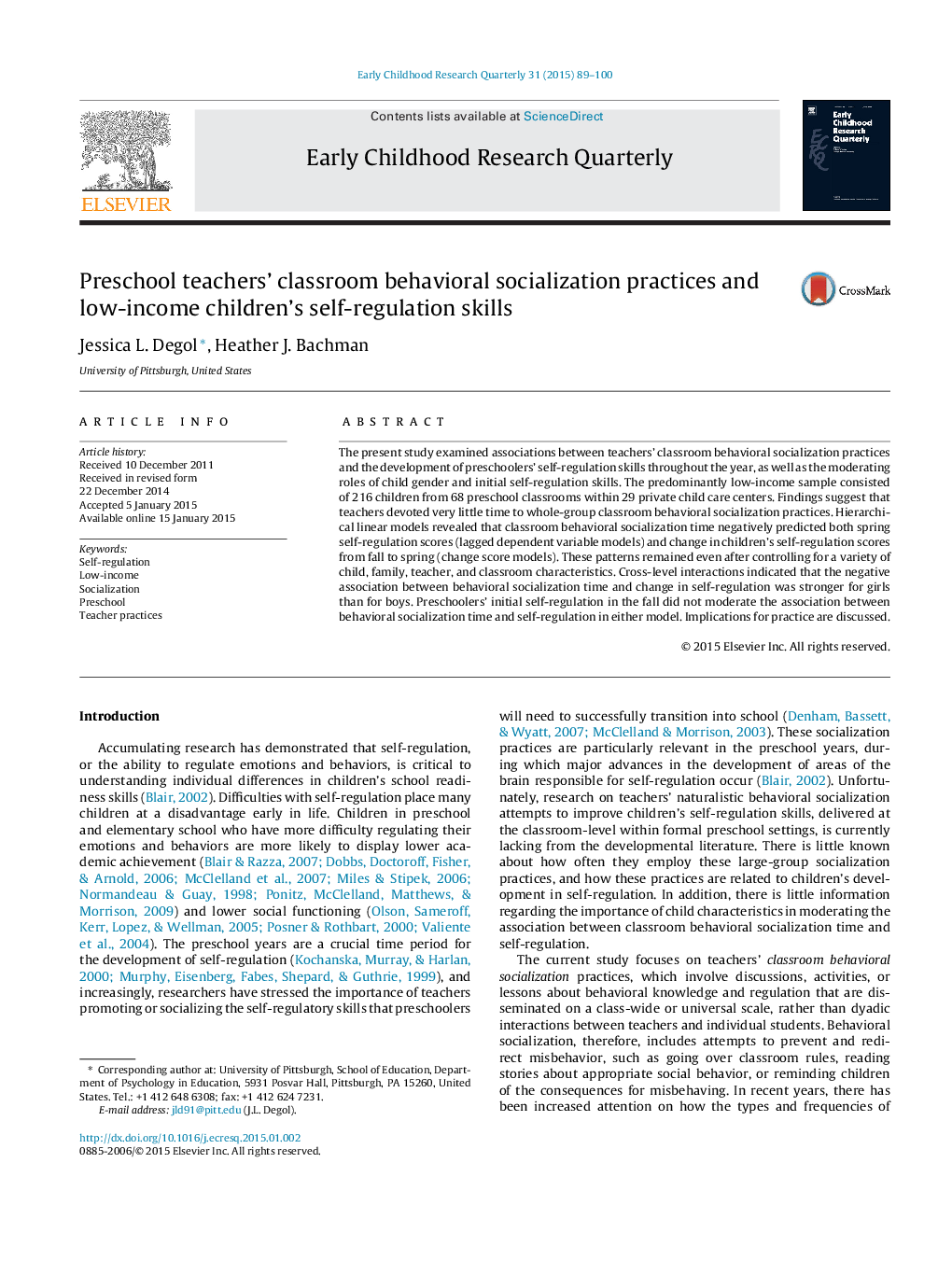| Article ID | Journal | Published Year | Pages | File Type |
|---|---|---|---|---|
| 353699 | Early Childhood Research Quarterly | 2015 | 12 Pages |
•Observed classroom behavioral socialization practices in 68 low-income preschool classrooms.•Teachers devoted few daily minutes to classroom behavioral socialization.•Behavioral socialization time negatively predicted changes in self-regulation after controlling for a host of child, family, classroom, and teacher characteristics.•Child gender moderated the association between classroom behavioral socialization time and changes in self-regulation, with girls driving the negative association.
The present study examined associations between teachers’ classroom behavioral socialization practices and the development of preschoolers’ self-regulation skills throughout the year, as well as the moderating roles of child gender and initial self-regulation skills. The predominantly low-income sample consisted of 216 children from 68 preschool classrooms within 29 private child care centers. Findings suggest that teachers devoted very little time to whole-group classroom behavioral socialization practices. Hierarchical linear models revealed that classroom behavioral socialization time negatively predicted both spring self-regulation scores (lagged dependent variable models) and change in children's self-regulation scores from fall to spring (change score models). These patterns remained even after controlling for a variety of child, family, teacher, and classroom characteristics. Cross-level interactions indicated that the negative association between behavioral socialization time and change in self-regulation was stronger for girls than for boys. Preschoolers’ initial self-regulation in the fall did not moderate the association between behavioral socialization time and self-regulation in either model. Implications for practice are discussed.
